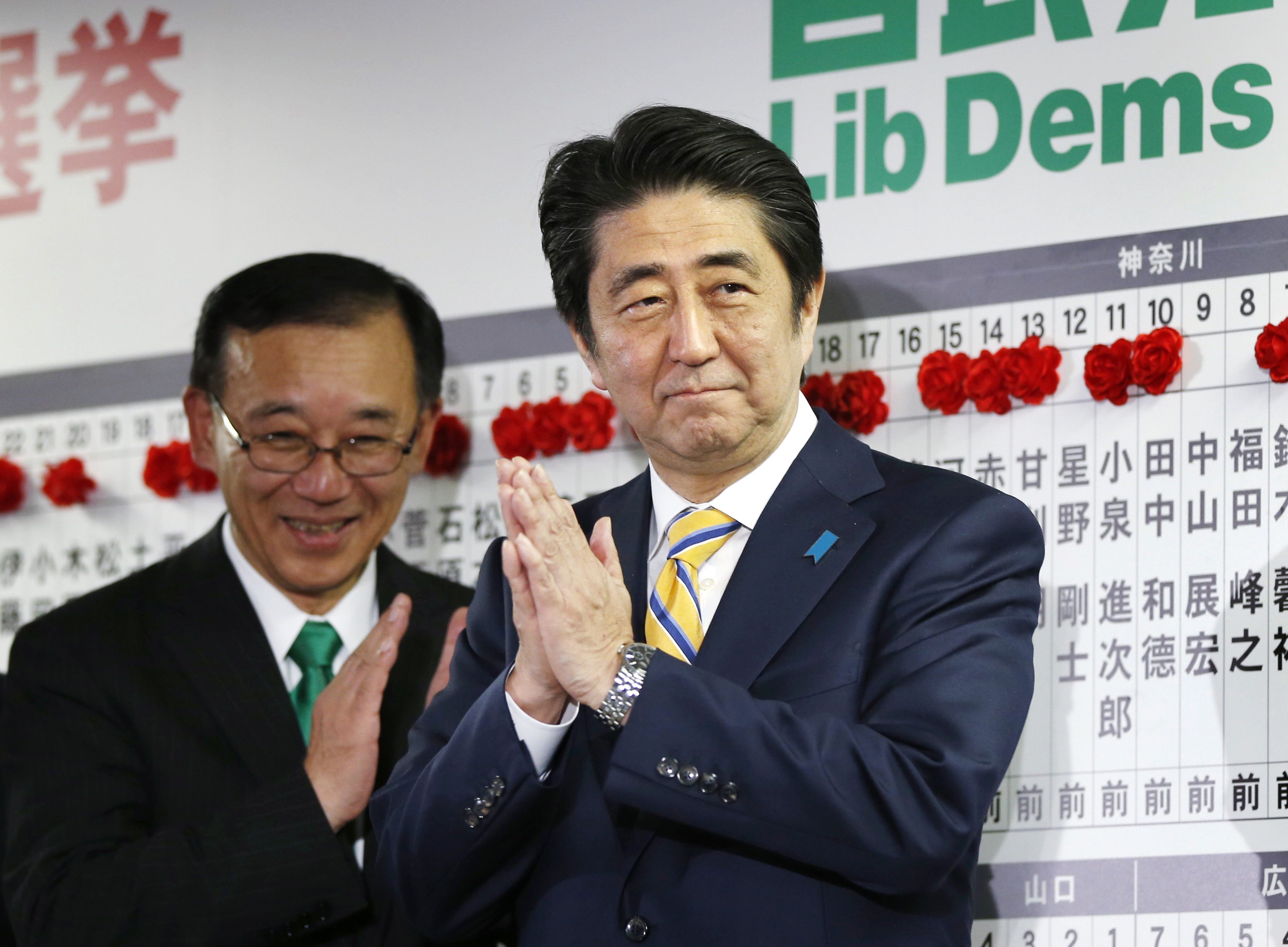Prime Minister Shinzo Abe's election win strengthened his hand to move beyond the fiscal and monetary stimulus that brought an end to deflation in his first two years. The tougher task for "Abenomics 2.0" will be to boost Japan's growth potential.
First up for the Abe administration will be completing leftover fiscal measures — a supplementary budget of as much as ¥3 trillion, and replacement legislation for the consumption tax, to delay the next increase to April 2017.
Abe, 60, then needs to battle fiscal-tightening advocates to enact corporate tax cuts he has pledged to make the country more appealing to invest in. Lobbyists for small farms have hampered a trade deal with the U.S. in the Trans-Pacific Trade Partnership talks. Labor and medical industry interests may counter his plans for strategic zones with lighter regulation.

















With your current subscription plan you can comment on stories. However, before writing your first comment, please create a display name in the Profile section of your subscriber account page.